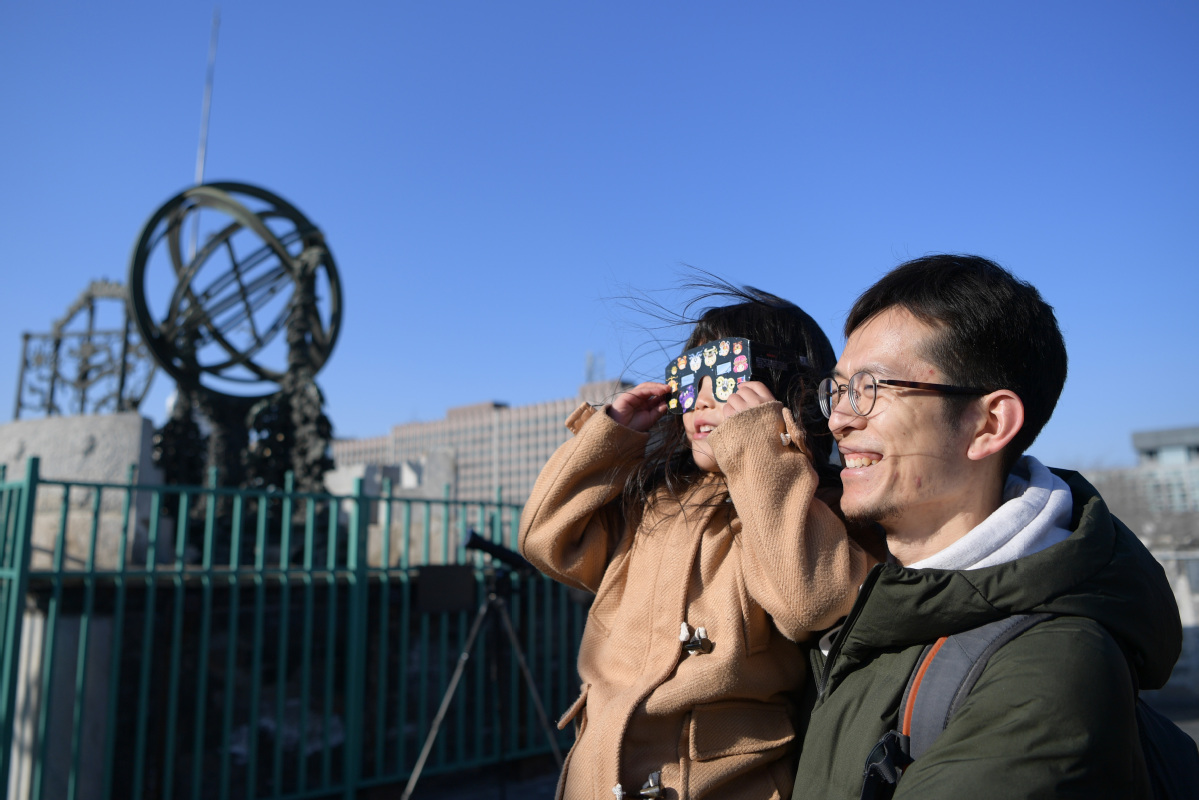Beijing, neighboring regions take coordinated action against air pollution
2020-05-06
BEIJING - Beijing, its neighboring port city Tianjin, and Hebei province simultaneously started implementing tougher regulations against air pollution on Friday.
The new regulations mainly target mobile pollution sources such as heavy-duty diesel trucks and non-road mobile machinery, which emit a large amount of waste gas despite their relatively small numbers compared with passenger vehicles.
The regulations, which were passed by the legislatures of the three regions in January after one and half years in the making, marked the first cross-region legislation effort to improve air quality in China.
As significantly, they signaled a new level of coordination among Beijing, Tianjin and Hebei in pursuing green development, over six years after China's decision-makers initiated a key strategy to coordinate the development of the regional city cluster.
TOUGH NUT TO CRACK
Air quality in Beijing, Tianjin and Hebei continued to improve in recent years as the regional authorities intensified efforts to prevent and control air pollution.
In 2019, the number of good air quality days in Beijing totaled 240, 64 more than in 2013, the year a national action plan was issued by the State Council to fight air pollution. The average concentration of PM2.5, small particulate matter that causes smog, hit a record low of 42 micrograms per cubic meter.
In 2018, Tianjin only saw 10 days of heavy air pollution, 39 days fewer than in 2013. And the number of good air quality days in Hebei grew to 208, 79 more than in 2013.
"The sky used to be very dusky. Now the air quality is much better. We can often see the blinking stars at night," said Wu Xianyun, a resident in Renxian County in Hebei.
However, despite these improvements, vehicle emissions, especially those come from heavy-duty diesel trucks, remain the primary source of PM2.5 in Beijing and its surrounding areas.
Beijing has about 240,000 heavy-duty diesel trucks and coaches, accounting for less than 4 percent of the capital's over 6.4 million motor vehicles. But they contribute to over 70 percent and 90 percent, respectively, of all the nitrogen oxide and particulate matters emissions from the city's motor vehicles.
"Based on data from vehicle checks, it remains a serious problem that emissions from heavy-duty diesel trucks exceed the standard level," said Zhang Qing, deputy director of Beijing's municipal legislature in January. "They cause significant difficulties to the task of reducing emission."
Moreover, the frequent cross-region travels of heavy-duty diesel trucks have also posed a challenge for regulators to track violators and enforce emission-related regulations.
CONCERTED EFFORT
The new regulations lay much emphasis on tackling the long-standing headache of cross-region law enforcement in emission violation cases.
According to the regulations, Beijing, Tianjin and Hebei will make concerted effort on the prevention and control of emission violations and step up joint consultations and law enforcement.
The three regions will also set up an information-sharing platform to boost coordination in the monitoring and management of emission violators.
"After the implementation of the regulations, Tianjin will share with Beijing and Hebei its blacklist of vehicles that violate emission standards, and vice versa," said Jin Xiangjun, vice mayor of Tianjin, in late April.
"Violators detected in one region will face restrictions in the other two, which will force violators to do emission revamp," Jin added.
To better enforce the new regulations, legislatures in Beijing, Tianjin and Hebei plan to organize a cross-region inspection on the coordinated implementation of the regulations, according to Zhang.
The coordinated legislation move has also helped raise awareness among the public about making their own contributions to reducing vehicle emission.
"It is the responsibilities of all of us to protect the environment," said a motorist surnamed Zhang in Hebei. "We should all be the promoters of green transportation means in an effort to reduce vehicle emission and make our homeland more beautiful."
Copyright © China Daily. All Rights Reserved
京ICP备13028878号-36
